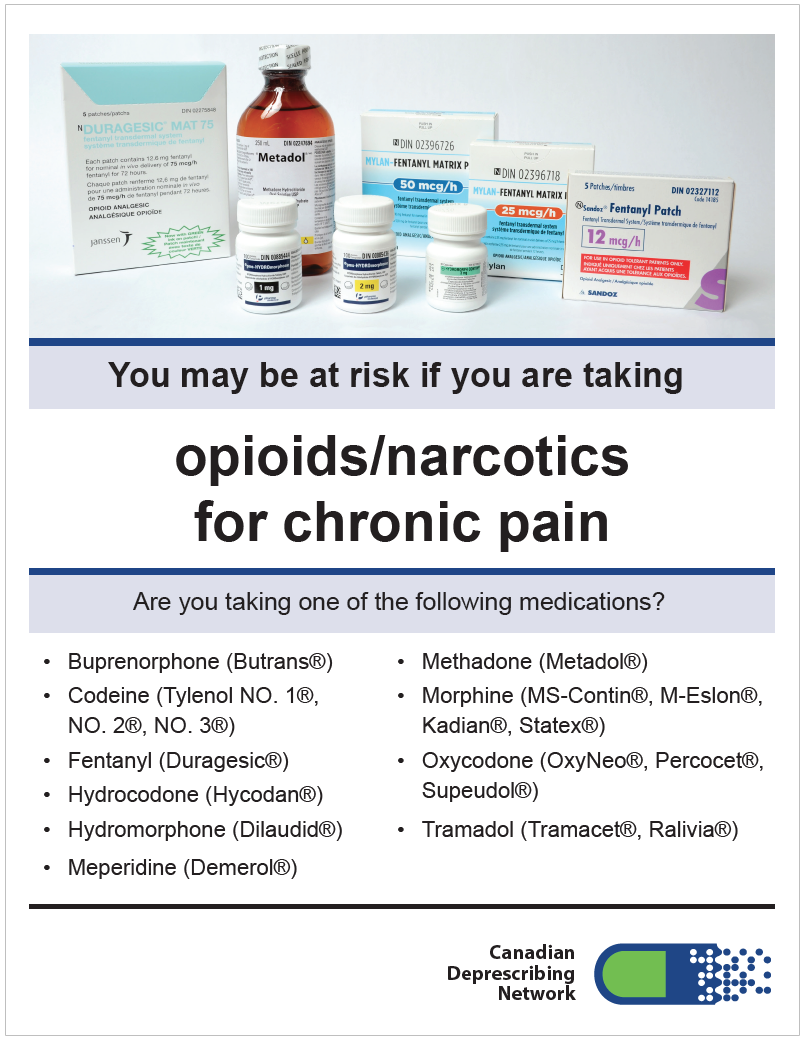Addressing the opioid crisis in Manitoba
The Canadian Medication Appropriateness and Deprescribing Networkand the Government of Manitoba are collaborating on a province-wide educational intervention addressing long-term opioid use for chronic non-cancer pain.
The Canadian Medication Appropriateness and Deprescribing Network developed an educational brochure about the risks of opioid use and safer alternatives through many consultations and focus groups with older adults suffering from chronic pain.
The Manitoba Government then mailed the educational brochures to 5,700 community-dwelling adults across Manitoba, who had active opioid prescriptions for chronic non-cancer pain.
The effectiveness of this educational intervention was determined by the reduction of opioid prescriptions.
Partners: Manitoba Government (Dept. of Health, Seniors and Active Living), Manitoba Monitored Drugs Review Committee, College of Physicians and Surgeons of Manitoba.
Results: Compared to usual care, the brochures modestly reduced opioid doses, but did not have an effect on the number of people stopping their opioid medication. Rates of substitution with other pain-relieving medications were not significantly different between groups.
Considerations: the differences in deprescribing efficacy between TAPERING and previous trials such as EMPOWER can be explained by:
the brochures being mailed by the provincial government instead of by a trusted health care provider,
a higher resistance to opioid deprescribing, possibly due to a greater dependence to this drug class compared to others
Future directions: future studies should look into the implementation of a synergistic approach to health education & behavioural interventions, by targeting both patients AND prescribers.


